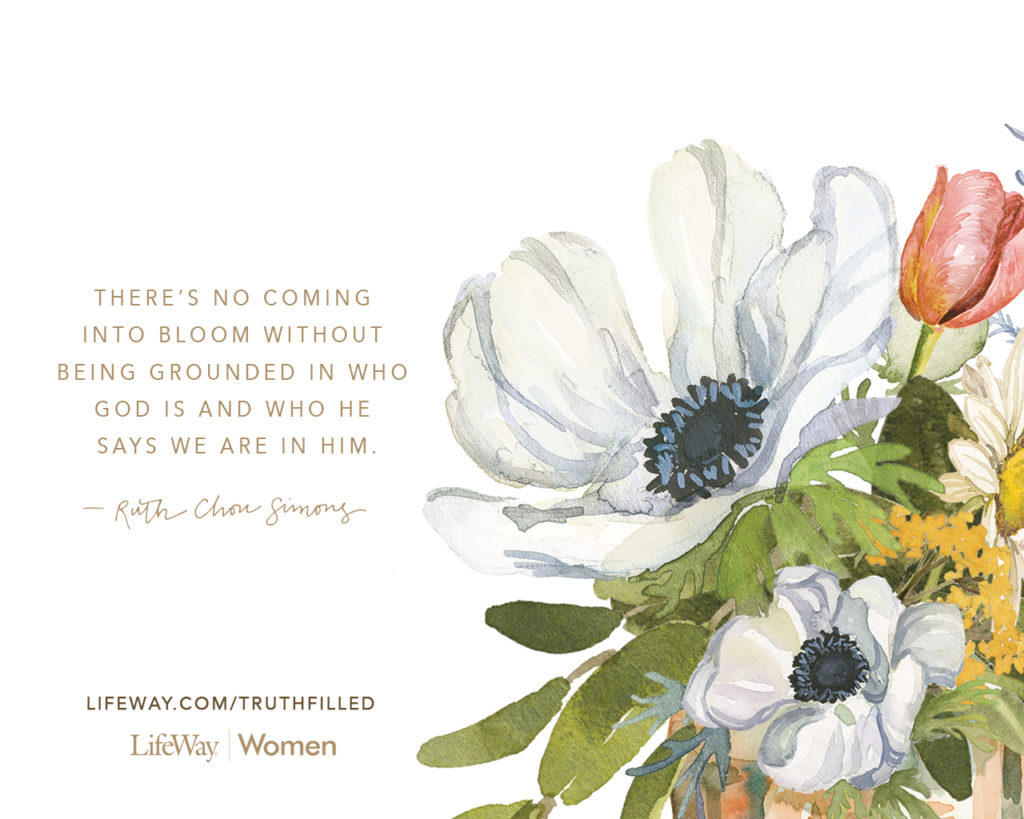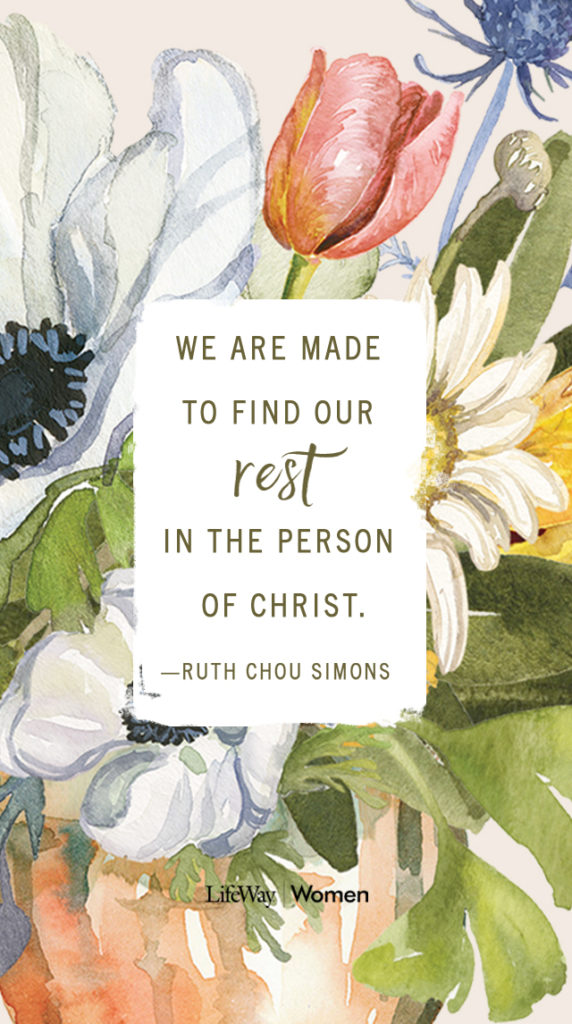Today we’re sharing an excerpt from Ruth Chou Simons’ new study, TruthFilled. Order your copy or see a free sample today at Lifeway.com/Truthfilled.
Have you ever started doing things or buying things in winter in hopes that spring will come more quickly—like when I walk into The Home Depot® and involuntarily reach for all the tiny tomato plants and cucumbers even when snow is still falling?
The other day I saw a huge indoor pot of lettuces growing—and naturally believed I needed to buy a pretty container of lettuce—because what could be more spring-welcoming than to snip lettuce that’s growing up from dirt? (I act as if growing veggies on my windowsill will cause snow to melt.)
My boys have their version of this. (You may know that I’m mom to six boys!) They have a habit of putting on sandals and shorts any time the sun is out and the temp reaches above forty degrees Fahrenheit. They start pulling out their summer clothes, bike helmets, and swim trunks. They are ready to be summer people—to do summery things. But the truth is, no matter how diligent they are to wear sandals or how many garden plants I’m ready to plant, we won’t be involved with the affairs of summer until the snow melts away and the true changes of the season occur.
You see, the truth is: True change only happens after our state of being changes.
Just like putting on sandals in snow or snipping lettuce from a container in your kitchen has no power to bring on spring, neither does our striving change our hearts apart from gospel transformation.
If you’re like me, sometimes it’s tempting to want to jump straight into the dos and don’ts of how we should live and skip over the reminders of who God is and who we are in Christ. (Do you sometimes think it is repetitive and maybe even a little boring?)
I’m tempted to focus on how I must set my mind on things above and dismiss the reminder that the power to do so comes from being raised with Christ as a born-again believer.
A fancy word for right conduct or practice is the word orthopraxy1—ortho meaning straight,2 praxy meaning practice3 (or imperatives). Orthopraxy is what we do because of our faith, and orthodoxy (or indicatives) is what we believe.4 Orthodoxy tells us what is straight; orthopraxy tells us how to walk along that straight line.
Without the indicatives—or what is true about who God is and what He’s done—the imperatives would be basically impossible. Attempting to do great things for God without trusting in the great things He’s already done for us will always lead to either a whole lot of self-righteousness or total despair and distance from God, fearing that you’ve failed Him.
Right believing leads to right living, so let’s grow in the practice of believing and preaching the truth of God’s Word to ourselves, together.
WHY COLOSSIANS?
The apostle Paul wrote Colossians to the church of Colossae—what we now know as a part of modern day Turkey.5 Paul wrote the letter while in prison in Rome. News reached Paul that heresy was swarming around the church at Colossae and threatened to influence the believers there with worldly belief systems. Paul wrote to warn the Colossians and direct them to truth in the face of heresy in Colossae. The church at Colossae was a mixture of Jewish and Gentile believers, and though they had heard the truth of the gospel, they were in danger of caving to paganism, worldliness, and the false beliefs in philosophical and legalistic thought.
The lie that threatened the Colossians was simply the idea that Christ was not sufficient—that He alone was not enough. Paul sought to reestablish the truth with his letter: Christ is all.
Paul sought to encourage the believers in Colossae to passionately serve and follow after Christ, but in order to do so, they had to hold steadfast to be filled by the truth of who God is, who we are in Him, what we must do in response, and how to persevere in the truth as a Christ-follower.
Paul knew that to be filled with the truth of the gospel isn’t a one-time outward adherence or acknowledgment, but a daily clinging to what is true while discerning what is false.
Through studying the Book of Colossians, we will also learn to establish a pattern of becoming truth-filled.
How often, in the face of doubt and fear, do we forget the truth that Christ is sufficient?
Want to learn more about TruthFilled? Watch the short video below or view a free sample and teaching video clips at Lifeway.com/Truthfilled.
And here are some fun wallpapers for your desktop and phone! Click the images below to download!
1. Dictionary.com, s.v. “orthopraxy,” accessed April 3, 2020, https://www.dictionary.com/browse/orthopraxy.
2. Dictionary.com, “ortho-.” accessed April 3, 2020, https://www.dictionary.com/browse/ortho-.
3. Dictionary.com, s.v. “praxis,” accessed April 3, 2020, https://www.dictionary.com/browse/praxis.
4. Dictionary.com, s.v. “orthodoxy,” accessed April 3, 2020, https://www.dictionary.com/browse/orthodoxy?s=t.
5. Mark Allan Powell, “Historical Background,” Introducing the New Testament: A Historical, Literary, and Theological Survey, (Grand Rapids, MI: Baker Academic, 2009).






